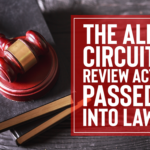The False Claims Act (FCA) has a long history in the United States, and was actually signed into law by President Abraham Lincoln to protect the federal government from contractors who attempted to defraud the government by providing shoddy or worthless goods and services during the Civil War.
The FCA continues to be the primary way in which the federal government takes legal action against those parties who would defraud the American taxpayers in order to make a profit and thereby weaken the government in its ability in carrying out its defense and domestic duties.
Broadly, the FCA provides federal prosecutors and private citizens with a cause of action by which they can bring a lawsuit for damages against contractors who have presented false claims to the US government or otherwise fraudulently contracted with the government. This is commonly seen in the following situations:
Defense contractors who have provided goods or services that were not what the government contracted for
Healthcare providers or related entities who have sought reimbursement for health care costs that were inflated or otherwise fraudulent
False statements in connection with pharmaceutical drugs (including off-label use) related to approval of drugs and reimbursements
When a party has violated the FCA, they will be liable for a penalty for each false claim as well as triple the amount of damages that the government suffered as a result of the false claim.
Who May Bring an FCA Claim?
Either the federal government or a private citizen may initiate an FCA claim. Private citizens that initiate FCA claims are often people who either worked with the offending company or individual who carried out the fraud or who became aware of the fraud either as a competitor of the offending party or an observer of the industry. The government may choose to join the private citizen’s claim if prosecutors believe there is significant potential for victory or settlement.
Large Rewards to Whistleblowers May be Available
The reason that private citizens are often motivated to bring FCA claims – aside from a sense of justice on behalf of the government and fellow taxpayers, which is a substantial motivation – is that, if successful, the initiator of a successful FCA lawsuit is entitled to between 15% and 25% of the government’s total recovery. With potential FCA recoveries frequently climbing into the hundreds of millions, this recovery on behalf of a concerned private citizen can be enormous, to say the least.
Employers Retaliate Against Whistleblowers at Their Financial Peril
Potential whistleblowers are often intimidated by their employers and concerned about potential retaliation (and even overt threats and actions already made and taken) by the offending parties if they take action – after all, if the party was willing to defraud the government, they may be willing to engage in other wrongdoing as well. An employer’s retaliation against you, however, is not only illegal but can also serve to increase the amount of funds you can recover in a successful FCA claim against the employer.
Bringing an FCA Claim With an Experienced FCA Attorney
FCA lawsuits are often long affairs and require intense and prolonged legal efforts. Given the societal benefits and the potential huge financial rewards, they can be nonetheless well worth the effort. At Kreindler & Associates, our focus is on bringing whistleblower claims and we will work with you to evaluate your potential case and guide you through the entire FCA process. An FCA claim is only valid if it has not previously been initiated by another plaintiff or the government, so it is in your interest to speak with an experienced FCA attorney as soon as possible. Contact us today for an evaluation of your allegations.




